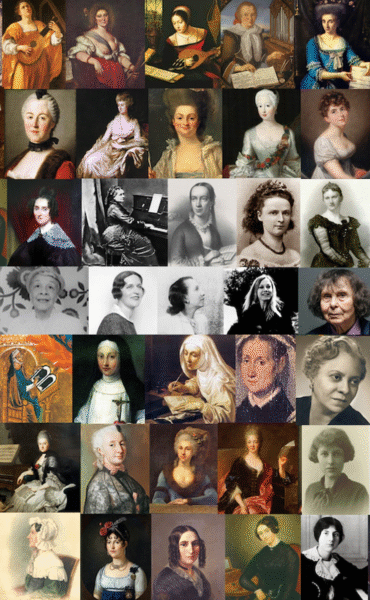
The role of women in the history of music has received increasing attention in recent years and has given rise to a substantial body of academic studies, bringing to light numerous female composers and other women who acted as agents of transformation and construction of musical practices, whose existence had either been unknown or downplayed. However, pedagogical practice—particularly at the undergraduate level—has not reflected this reality, often limiting itself to the mere addition of a few women's names to pre-existing curricular units.
Grounded in the specific theoretical framework concerning the inclusion of women in the classroom, within the contexto of Bumanities and Social Sciences (McIntosh, Tetreault), this course does not align to the tokenistic approach of listing names and biographies within a framework of compensatory musicology. Instead, it rigorously addresses fundamental issues of canon formation (Citron, Rieger, Grotjahn), intersectionality (Crenshaw, Yuval-Davis, Bowers), and the pedagogy of female composition (Green, Cyrus), shedding light on the role of women—including Portuguese women—in consolidating, disseminating, and innovating the Western musical tradition. It moves beyond the customary “adding women in” approach and contributes to a broader reflection on their role as cultural agents.
The proposed course (which, in an earlier version, had already been approved for the 2023/2024 academic year) aligns with the existing Music History courses offered by NOVA FCSH, particularly within the undergraduate program in Musical Sciences, which is currently structured according to historical periods. At the same time, it offers an innovative perspective by focusing specifically on women’s musical production—a topic of growing interest in historical musicology, both at the level of research (as exemplified by the FEMUS 18 project, currently underway at INET-md and funded by FCT (CEEC) for 2024–2030) and at the level of dissemination (with an increasing number of women’s works being programmed in concert halls). Despite this growing attention, women's musical production is still not structurally integrated into this faculty’s curricular offerings.
Lastly, the course is a valuable addition due to its systematic inclusion of Portuguese female composers in all topics addressed. In line with recent trends in international musicological research and the humanities and social sciences more broadly, this course combines a focus on gender studies with the history of composition and knowledge of Portuguese musical heritage, thus serving as a complement to existing Music History courses and contributing to a timely and relevant update of NOVA FCSH’s curriculum.
